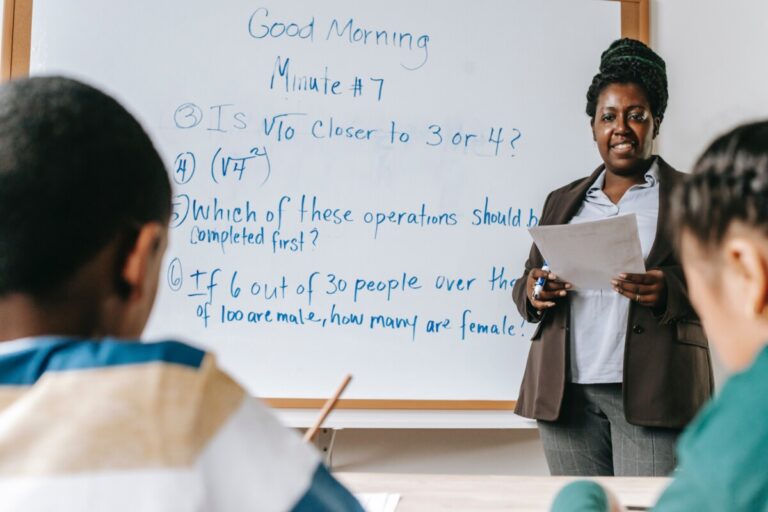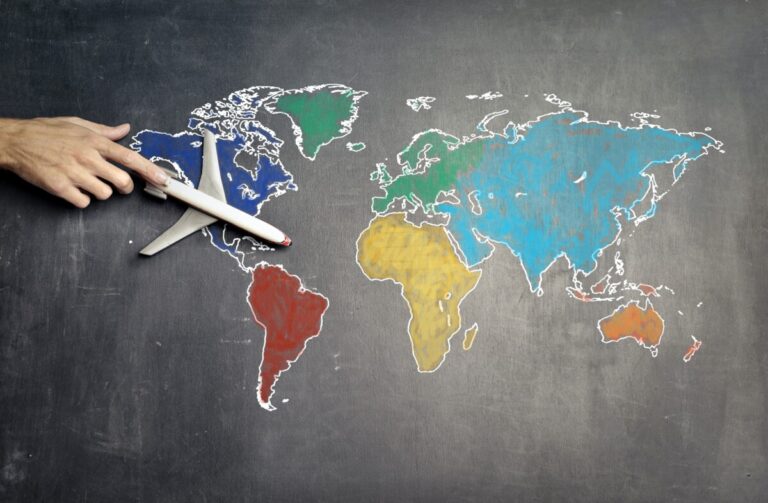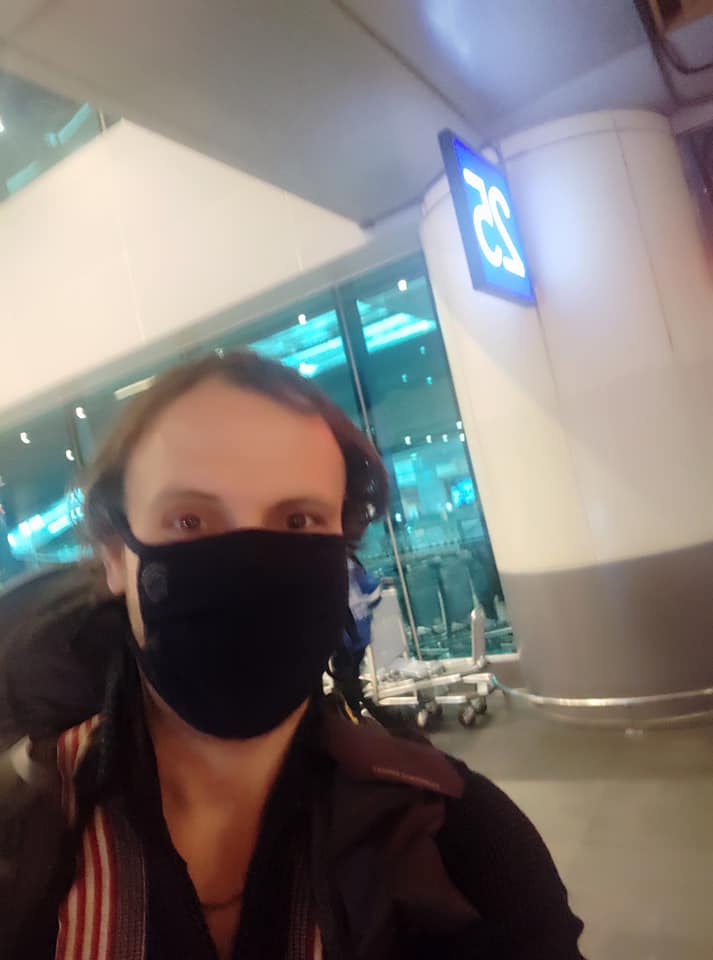How Do Traveling Teachers Stay Organized?
Traveling teachers are hard-working people and they have to adapt quickly and often. They’re constantly on the move, but they always manage to find time for their students. Sometimes, it can seem like these teachers have a sixth sense for organization and efficiency and that’s because they do.
Traveling teachers stay organized by having a system that works for them and adapting when necessary. They have backup lights and batteries, and all equipment is within reach. On the computer, they have all their lesson plans ready and backup ones handy in case of an emergency.
Being a traveling teacher myself for years and having talked to many traveling teachers who take their jobs seriously I have learned a lot. They are always looking for ways to improve their organizational skills and make sure they get everything done.
Find a system that works for you and be flexible
When you’re an overwhelmed teacher, it’s easy to get caught up in the idea that you need new things.
When it comes down to it, finding a system that works for you will take less time than running around town looking for new tools. Chances are good that there are some tools already at home that could help make your life as a traveling teacher easier.
Being a traveling teacher can be incredibly rewarding, but also challenging. It takes a lot of time and patience to build a business from scratch, especially when you’re constantly on the road.
As with any job in this field, being flexible is key. You never know what kind of lesson plans your students will have prepared for you or what kind of situation they’ll throw at you (and vice versa).
The organization is essential for keeping yourself sane while traveling around with all of your supplies.
For example, if you have an iPhone or iPad with Apple’s Notes app installed on it (and who doesn’t?), this is what I know some use for lesson planning. It’s simple, flexible, mobile, and thus easily accessible anywhere with wifi access or cell service.
I do use the Notes app to keep track of homework assignments, grades, and other information about my students. This way, I’m able to access it from any computer or mobile device at any time. If something happens to my phone (like it gets stolen), no one has access to all that precious data.
The Notes app has a few features that make it ideal for my purposes.
- First, it’s simple, so anyone can use it to create text documents of any length and complexity.
- Second, it’s flexible, I can share notes with other people, like teachers in my school or friends back home and they’ll be able to see exactly what I’ve written (even if they’re using an Android phone).
- Third, it’s mobile, as long as I have internet access on my phone or iPad (which I always do), I can access documents from anywhere in the world.
Set aside time for planning, searching, and creating.
You may be tempted to spend all your time exploring the city and we have all been there before. If you want to make sure that your lesson plans are ready and waiting for you when it’s time to teach, it’s important that you set aside time for planning and creating.
When it comes down to it, there are no hard and fast rules about how much planning should take place in advance of your trip, after all, every teacher’s needs are different. I would recommend setting aside at least one hour per day (or more) as a minimum amount of planning time. This could mean simply brainstorming ideas on paper without any actual preparation yet or going through all of the steps necessary before actually teaching a class.
Making lesson plans, creating materials like worksheets or handouts, practicing with students back home via Skype/video chat if possible so they know what kinds of questions might come up during class…
Depending on how much time you have, there are a number of ways that you can plan your lessons in advance. The options range from simply brainstorming ideas to creating complete lesson plans and materials.
Unique challenges of staying organized as a traveling teacher
As a traveling teacher, you’re faced with many unique challenges. You have to stay organized while moving from place to place, which is no easy feat. Here are some tips for how to stay organized as a traveling teacher
- Separate Items- Keep your personal items in one place and check them when you travel. This can help prevent losing or forgetting something important like your passport or laptop computer when you’re on the go!
- Keep up to date- Make sure all of your paperwork is up-to-date before leaving town (e.g., updated address book). If there’s anything else that needs attention before leaving town, such as paying bills or making plans now so that it will be easier later on when time gets tight because of being away from home base!
- Ask for help- Don’t be afraid to ask for help. If you’re not sure what to do, or if there’s anything that needs attention before leaving town, ask someone. It’s okay to admit that you don’t know everything and need some help now and then; just make sure it gets done.
- Keep in touch– It’s important to stay in touch with family and friends when you’re traveling for work, especially if you’re going to be gone for an extended period of time. You may want to set up a separate email account just for work so that personal messages don’t get mixed up with professional ones, this can help reduce confusion later on.
- Bring only what you need- When you’re traveling, it’s important to bring along only the things you need. This means leaving items at home that aren’t essential for your trip.
- Have a system for teaching material- It’s important to have one system for all your teaching materials so that they’re easy to find when needed.
- Have backup power sources and devices- The power may go out or the internet may not work, you need to be ready for this and have multiple options. Having backups really helps in a pinch.
It’s also a good idea to set up an auto-reply message on your personal email account that lets people know where you are and when they can expect to hear from you again. This can help avoid any confusion or awkwardness that might otherwise occur when people try to contact you while you’re away or in different time zones.
Time management strategies assignments and schedules
Keep in mind that your calendar will be full of things that you need to do, but it’s also important to leave time for yourself and your family. Set aside some time each day to check email or social media (if this is something you can’t resist doing while working), but make sure it doesn’t take up too much of your time. Here are what I use for time management
- Prioritize your tasks.
- Plan for interruptions.
- Be flexible with your schedule, since things can change quickly and unexpectedly in the classroom.
- Use a calendar or planner to keep track of all your assignments, deadlines, and meetings (or use an app like Trello or Wunderlist if you prefer digital tools). Or try using a Franklin Covey planner if you prefer a physical one!
Keep your classroom as organized as possible.
- Plan your classroom before you travel.
- Keep it clean and tidy.
- Organize your materials so they are easy to find, even when you’re packing up in a hurry or unpacking after a long day of travel.
If you’re traveling with kids, plan frequent breaks. Consider packing a few games and books for your child to enjoy during the drive.
Use free apps for travel, health, safety, and productivity
Some of these are common sense but check that they are downloaded and up to date. Some versions work when you are connected to the internet to save space on your phone, downloading it can save yo a hassle later.
- Google Maps– Navigation, real-time traffic updates, and recommendations for restaurants, attractions, and more.
- Duolingo– Learn a new language or brush up on your language skills before traveling to a foreign country.
- Skyscanner- Compare flight prices, set price alerts, and book flights directly from the app.
- TripIt-Organize all your travel plans, including flight and hotel reservations, in one place.
- Citymapper– Get detailed transit directions, real-time departure and arrival times, and service alerts for public transportation in major cities around the world.
- XE Currency– Convert currencies and calculate exchange rates, even when offline.
- Airbnb– Find affordable accommodations and unique places to stay around the world.
- PackPoint– Create a custom packing list based on your destination, length of stay, and activities.
- Yelp– Discover and read reviews of local restaurants, cafes, and bars.
- VPN– Securely access the internet and protect your privacy while using public Wi-Fi networks.
Have Storage Space for Teaching Materials
You’ll want to make sure you have plenty of storage space for all your teaching materials. Don’t overpack, don’t do it. If you’re staying in a hostel, there will be some communal areas where you can store items that don’t need to be kept with you at all times. In a hotel or AirBnB no problem but in a car it could be tricky.
Make sure you have room for your laptop and other tech gadgets. You’ll want to take advantage of these when planning lessons or designing new activities for students as well as making sure they stay charged up so that no one is left without internet access during class time.
Don’t forget snacks and water. It’s easy to get distracted by exploring new places when on vacation, but it’s important not to forget about staying hydrated while traveling abroad (especially if the weather gets warmer). I will say again don’t forget about packing power banks, you never know when they might come in handy.
Finding a good place to stay can be difficult, but it’s important to make sure you’re comfortable. Try to find a place that has ample space. If you’re staying with friends or family, ask them if they mind if you bring your own sheets or sleeping bag for added comfort.
You may have to make some sacrifices
You may have to make some sacrifices when it comes to tech gadgets like laptops or phones. It’s important to remember that you will not be able to take all of your tech gadgets with you. Laptops are heavy, bulky, and difficult to carry around.
Phones have limited storage so it is recommended that teachers buy a new laptop or phone before heading out on their journey if they want one.
There are many options for both of these devices: tablets. A tablet can be used as an alternative for both laptops and phones by storing files in cloud storage apps such as Dropbox or Google Drive instead of having them stored locally on the device itself.
Tablets are also much easier to carry around, making them an ideal alternative for teachers who want to travel with their tech gadgets. They can be used as a laptop but it does not have the same capabilities as one. This is why it is recommended that teachers buy a new laptop or phone before heading out on their journey if they want one.
Find Good Internet
Find a good internet connection wherever you go. If you’re staying in a hotel, check with the front desk before booking your room. Most hotels offer free Wi-Fi, but some charge extra for it. If you’re staying in a hostel or Airbnb, ask about their internet situation as well. You can ask them for a speed test. If you’re staying at someone’s house while they’re away on vacation (or if they have their own apartment), ask them how much bandwidth they have available for guests. Also whether there are any restrictions on usage time or content accessed through the connection.
Space on Trains, Planes, and Automobiles
If you’re going to be traveling by car, bus, airplane, or train, think about how much space there is. Are there enough seats? Do you have a good view of the road or are there people standing in front of you? Does your seatmate want to chat? Is their book interesting and do they mind if you read over their shoulder? Is there internet? What about lighting and tunnels? There are
Tips for Packing Efficiently and Minimizing Clutter
The most important thing to remember when packing for a trip is that you don’t need to bring everything. You can save a lot of space and money by only taking what’s essential, so make sure that every item in your suitcase has a purpose.
- Pack only what you need– Don’t overpack. If it doesn’t fit in the allotted space, leave it behind (or check out some extra luggage).
- Pack in a way that works for you– There are many different ways to organize your suitcase based on how much time and effort they take.
- Pack in layers– This is a great way to make sure that you have room for all of your clothes.
Self-care strategies
When you’re traveling, it can be difficult to find time for self-care. However, this is an essential part of being able to travel as a teacher and maintain your mental and physical wellness. Self-care strategies include
- Setting aside time each day for exercise
- Taking breaks from technology during the day (e.g., using an app like Forest)
- Practicing mindfulness techniques like meditation or yoga
Take time each day to relax and unwind by reading, writing, or listening to music.





